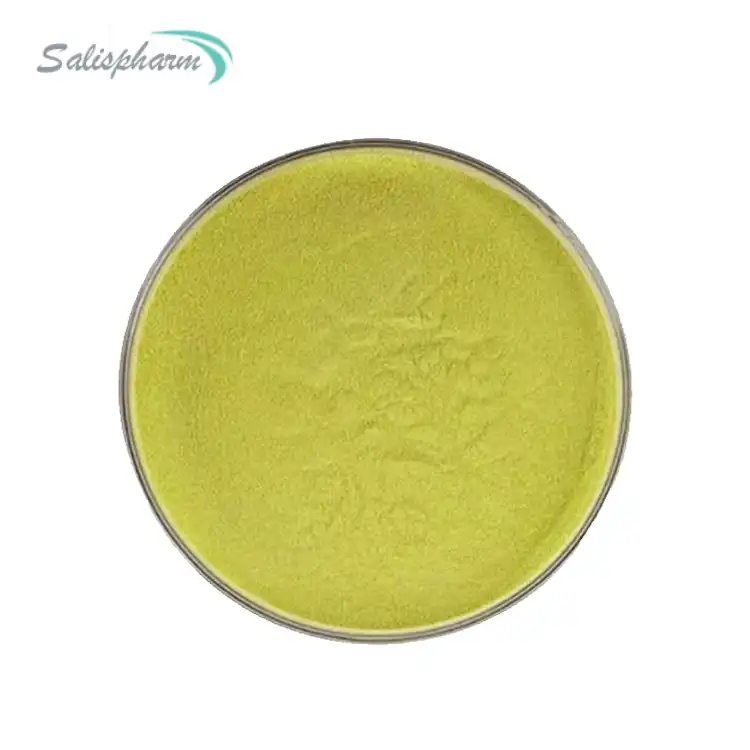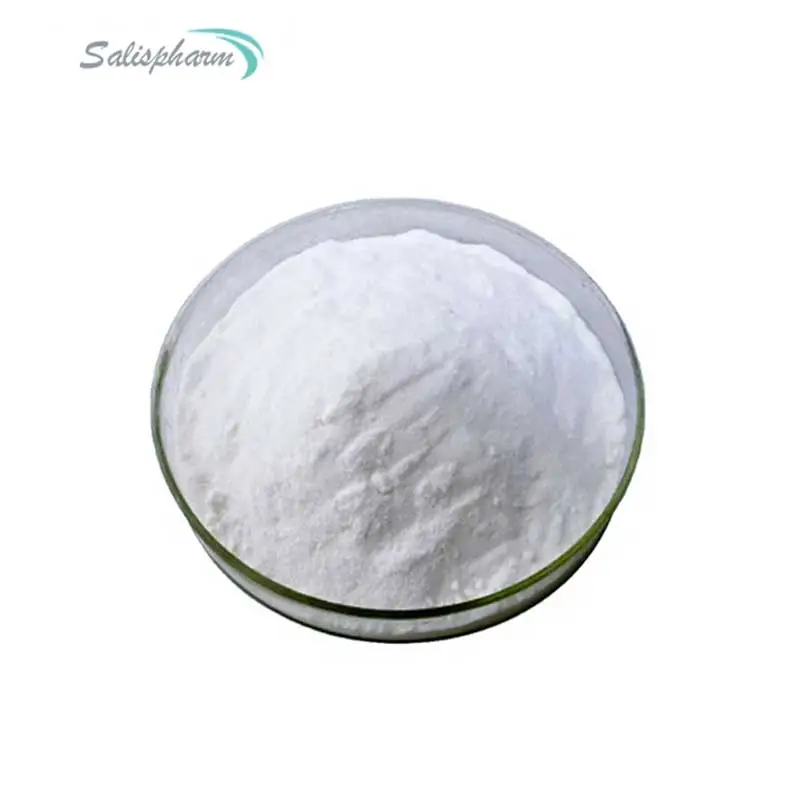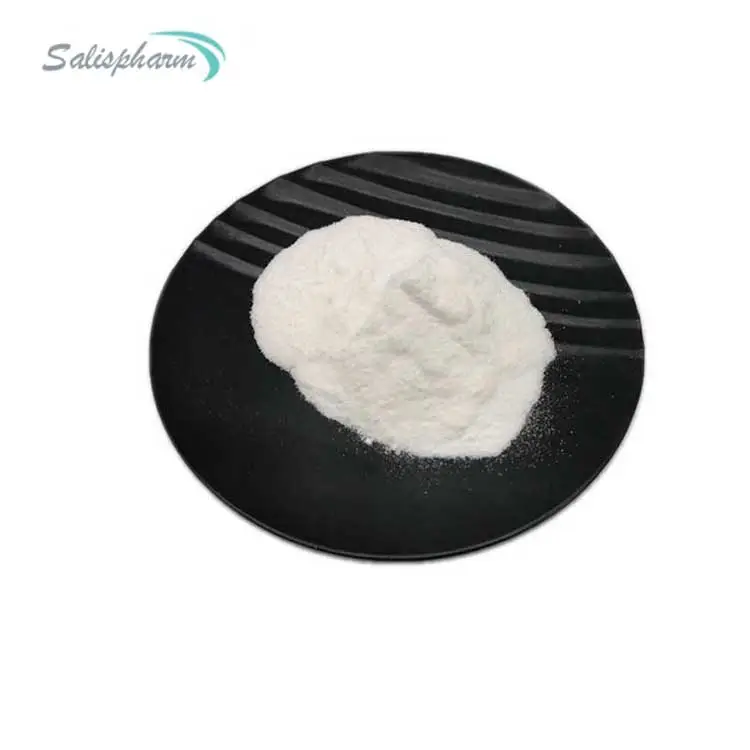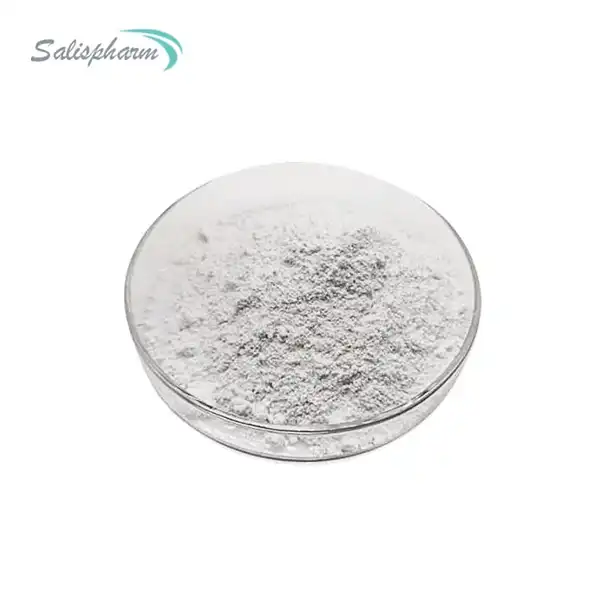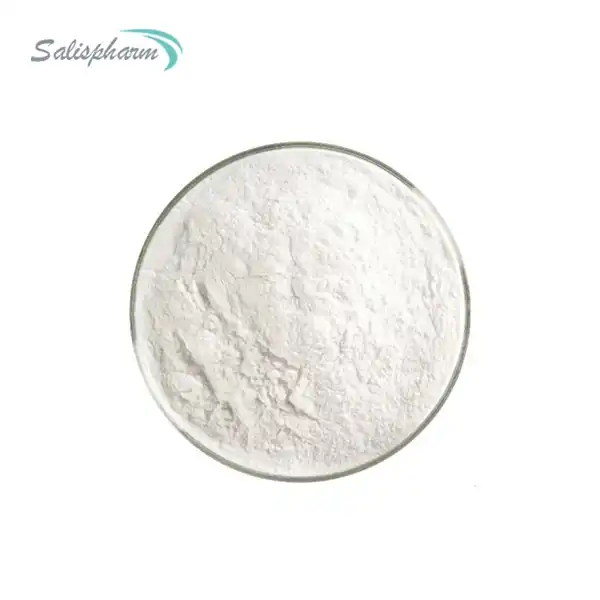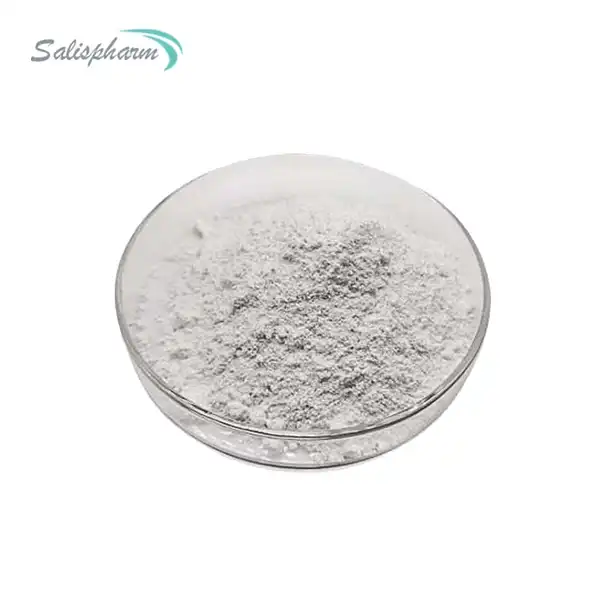Loperamide hydrochloride (HCl) powder and Imodium powder are often confused due to their similar uses in treating diarrhea. However, understanding the relationship between these two substances is crucial for proper usage and effectiveness. This article aims to clarify the connection between loperamide HCl powder and Imodium powder, addressing common questions and providing comprehensive information for those seeking relief from gastrointestinal discomfort.
What is the active ingredient in Imodium?
Imodium is a well-known brand name for an over-the-counter medication used to treat diarrhea. The active ingredient in Imodium is loperamide hydrochloride (HCl). This means that when you purchase Imodium powder or any other form of Imodium, you are essentially getting a product that contains loperamide HCl as its primary therapeutic component.
Loperamide HCl works by slowing down the movement of fluids through the intestines. It does this by affecting the muscles in the intestines, reducing the speed at which contents move through the digestive system. This action allows more time for water to be absorbed from the stool, resulting in firmer stools and less frequent bowel movements.
The effectiveness of Imodium in treating diarrhea is directly attributed to loperamide HCl. This active ingredient has been extensively studied and proven to be effective in managing acute and chronic diarrhea in adults. It's important to note that while Imodium is a brand name, there are other products available that also contain loperamide HCl as their active ingredient.
When comparing Imodium powder to pure loperamide HCl powder, the primary difference lies in the branding and potentially some inactive ingredients. Imodium powder may contain additional substances for flavor, preservation, or to aid in dissolution, while pure loperamide HCl powder might not have these extra components. However, the therapeutic effect is derived from the loperamide HCl in both cases.
How does loperamide HCl powder compare to Imodium tablets?
While both loperamide HCl powder and Imodium tablets contain the same active ingredient, there are some differences in their formulation and usage that are worth exploring.
Loperamide HCl powder is typically a pure form of the active ingredient, often used in compounding pharmacies or for research purposes. It allows for precise dosing and can be easily mixed with liquids for administration. This form might be preferred in clinical settings or for patients who have difficulty swallowing tablets.
Imodium tablets, on the other hand, are a consumer-ready product designed for convenience and ease of use. They come in pre-measured doses, usually 2 mg per tablet, and may contain additional inactive ingredients to improve stability, taste, or dissolution in the stomach.
The primary advantages of Imodium tablets include:
1. Convenience: Pre-measured doses make it easy for consumers to take the correct amount without the need for measuring.
2. Portability: Tablets are easy to carry in a purse or pocket for use when needed.
3. Stability: The tablet form may have a longer shelf life compared to powder forms.
However, loperamide HCl powder offers its own set of benefits:
1. Flexible dosing: The powder form allows for more precise dosing, which can be beneficial for certain patients or in clinical settings.
2. Ease of administration: For individuals who have difficulty swallowing tablets, the powder can be mixed with liquids.
3. Potential for compounding: Pharmacists can use the powder to create custom formulations tailored to specific patient needs.
In terms of effectiveness, both forms should provide similar results when taken at equivalent doses. The choice between powder and tablets often comes down to personal preference, specific medical needs, or the recommendation of a healthcare provider.
It's worth noting that regardless of the form, loperamide HCl should be used according to the instructions provided or as directed by a healthcare professional. Proper dosing is crucial for both safety and efficacy.
Can loperamide HCl powder be used for the same purposes as Imodium?
Given that loperamide HCl powder is the active ingredient in Imodium, it can indeed be used for the same purposes. Both are primarily employed in the treatment of diarrhea, but there are some nuances to consider when comparing their usage.
The primary uses of loperamide HCl, whether in powder form or as Imodium, include:
1. Acute diarrhea: Both forms are effective in treating sudden onset diarrhea, helping to reduce the frequency of bowel movements and improve stool consistency.
2. Chronic diarrhea: For individuals with ongoing digestive issues, loperamide HCl can provide relief and help manage symptoms over extended periods.
3. Traveler's diarrhea: Many people use Imodium or loperamide HCl products when traveling to areas where digestive issues are common due to changes in diet or exposure to different bacteria.
4. Inflammatory bowel diseases: In some cases, under medical supervision, loperamide HCl may be used to manage symptoms associated with conditions like ulcerative colitis or Crohn's disease.
5. Ileostomy management: For patients with an ileostomy, loperamide HCl can help reduce the volume of output, making stoma management easier.
While the uses are the same, there are some considerations when choosing between loperamide HCl powder and Imodium:
1. Prescription vs. Over-the-Counter: Imodium is readily available over-the-counter, making it easily accessible for most consumers. Pure loperamide HCl powder might require a prescription or be more commonly used in clinical settings.
2. Dosage control: Loperamide HCl powder allows for more precise dosing, which can be beneficial in certain medical situations or for patients who require very specific amounts.
3. Administration flexibility: The powder form can be mixed with liquids or foods, potentially making it easier to administer to patients who have difficulty swallowing tablets.
4. Compounding potential: Healthcare providers or compounding pharmacists can use loperamide HCl powder to create custom formulations, potentially combining it with other ingredients for specific therapeutic purposes.
It's crucial to emphasize that regardless of the form, loperamide HCl should be used responsibly and according to guidelines. While it's effective for managing diarrhea, it's not a cure-all for all gastrointestinal issues. Users should be aware of the following:
1. Duration of use: For acute diarrhea, loperamide HCl should typically not be used for more than two days without consulting a healthcare provider.
2. Underlying conditions: If diarrhea is accompanied by fever or bloody stools, it's important to seek medical attention as these symptoms may indicate a more serious condition.
3. Hydration: While loperamide HCl can help reduce fluid loss, it's still important to maintain proper hydration when experiencing diarrhea.
4. Interactions: Like any medication, loperamide HCl can interact with other drugs or supplements. It's important to discuss its use with a healthcare provider, especially for individuals taking other medications.
5. Special populations: Usage guidelines may differ for children, elderly individuals, or those with certain health conditions. Always follow professional medical advice in these cases.
In conclusion, while loperamide HCl powder and Imodium can be used for the same purposes, the choice between them often depends on factors such as availability, ease of use, and specific medical needs. Both forms offer effective relief from diarrhea when used appropriately, but it's always best to consult with a healthcare provider for personalized advice, especially for chronic conditions or when symptoms persist.
If you are also interested in this product and want to know more product details, or want to know about other related products, please feel free to contact iceyqiang@aliyun.com.
References:
1. U.S. Food and Drug Administration. (2019). "Imodium (loperamide) Information." FDA.gov.
2. World Health Organization. (2021). "WHO Model List of Essential Medicines." WHO.int.
3. McQuaid, K. R. (2021). "Drugs Used in the Treatment of Gastrointestinal Diseases." In B. G. Katzung (Ed.), Basic & Clinical Pharmacology (15th ed.). McGraw-Hill Education.
4. Hanauer, S. B. (2015). "Oral therapy for acute diarrhea." New England Journal of Medicine, 372(17), 1663-1664.
5. Corsetti, M., & Tack, J. (2018). "Loperamide: a first-line therapy for chronic diarrhea." Expert Review of Gastroenterology & Hepatology, 12(5), 437-439.
6. DailyMed. (2022). "LOPERAMIDE HYDROCHLORIDE powder." U.S. National Library of Medicine.
7. Regnard, C., Twycross, R., Mihalyo, M., & Wilcock, A. (2011). "Loperamide." Journal of Pain and Symptom Management, 42(2), 319-323.
8. Guerrant, R. L., Van Gilder, T., Steiner, T. S., et al. (2001). "Practice Guidelines for the Management of Infectious Diarrhea." Clinical Infectious Diseases, 32(3), 331-351.
9. Camilleri, M. (2018). "Diagnosis and treatment of irritable bowel syndrome: a review." JAMA, 319(8), 811-822.
10. Bytzer, P., & Fosnes, G. S. (2013). "Assessment and treatment of diarrhoea." Best Practice & Research Clinical Gastroenterology, 27(5), 609-622.



